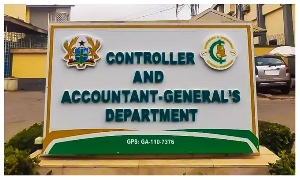National and sub-national government bodies across the world recognize that in order to avoid a crisis of trust and gain the confidence of their citizens, they need to create an environment that promotes trust and demonstrate transparency in realizing their mandate.
This recognition is even more pronounced when delivering on public infrastructure; not only because of the large capital outlay involved, but also due to the significant multiplier effect on the economy and social lives of beneficiaries.
This is why CoST Sekondi Takoradi is working to improve transparency in public infrastructure, value for money among others in project execution and delivery.
What projects?
The CoST previously took assurance on some projects within the Metropolis, but this year, the second Assurance Report showcases significant strides made by CoST Sekondi-Takoradi in promoting transparency in the delivery of public infrastructure in eight (8) sub-national government in the Western Region of Ghana.
It highlights issues on data disclosure, potential drivers of corruption and mismanagement, as well as suggesting recommendations based on findings to spur reform in line with CoST’s Assurance Manual and Guidance Note.
Mr. Isaac Aidoo, CoST Sekondi Takoradi Manager says the assurance process was conducted on eight (8) projects in four (4) vital sectors of socio-economic importance; that include livelihood development, health, transportation and education.
Aims
The report aims at helping Procuring Entities (PEs) to improve on their infrastructure delivery processes – from needs assessment, project design, procurement and implementation, and quality assurance.
As a neutral forum, the report would assist the Multi-Stakeholder Forum (MSF), civil society actors – including; media practitioners who would use it as an advocacy tool to transform public infrastructure delivery.
The report could also be an invaluable resource for academic researchers and contribute to a growing body of knowledge in the sector.
The Citizens could use it as a basis to demand for better transparency and hold duty-bearers to account also.
Research Findings
Specifically, the Assurance Report also revealed that overall proactive and reactive data disclosure was desirable considering the fact that an average of 47.57 per cent was realized from the survey.
The PEs that obtained the highest overall score were Sekondi-Takoradi Metropolitan Assembly and Wassa East District Assembly.
Each had a score of 37 which explains that 58.21 per cent of the overall disclosure score of 67 data points. Whereas the PE that obtained the least overall score was Effia-Kwesimintsim Municipal Assembly with a score of 18, which explains 26.87 per cennt of the overall data point of 67.
It was also revealed that only one sub-national government (Ahanta West Municipal Assembly) was able to avoid both time and cost overruns.
Some of the key findings from the study include; limited reliance on feasibility study recommendations to inform design of projects, variations in scope of work not reflected on contract price, neglect of safety protocols on project site, lack of capacity and logistics to ascertain quality of work as well as none inclusion of ancillary facilities to make public facilities user-friendly (thus, budgets of PEs appeared to be centred on the cost of the works only.
Limiting opacity throughout the project cycle has enormous benefit for all stakeholders.
It ensures better value and return from investment for both citizens and businesses which would ultimately reduce distrust in government.
"As we usher in a new dawn in infrastructure transparency, citizen participation and accountability towards achieving our vision of quality infrastructure, stronger economies and better lives, we are excited by the challenge ahead as we engage key stakeholders, including; ordinary citizens on the findings and recommendations in the Report.
“We are grateful to the Assurance Team, management of the various procuring entities (PEs) and the CoST Sekondi-Takoradi Secretariat. We are equally thankful to the selfless members of the Multi-Stakeholder Group (MSG), specifically representatives from government (Sekondi-Takoradi Metropolitan Assembly), the private sector (Architectural Spring Limited, Sekondi-Takoradi Chamber of Commerce and Industry and, Adax Construction Limited) and from civil society (STMA – Citywide Settlement Upgrading Fund, Friends of the Nation, Ghana News Agency and Africa Women International)," he added.
The Public Procurement Act
In Ghana, the promulgation into law of the Public Procurement Act 663 and its amendment Act 914, Local Government Act 936, Right to Information Act 989, Public Financial Management Act, 2016, among others ensures value for money, citizenry participation, transparency, public disclosure of project data, and eschews corruption and mismanagement in procuring infrastructure with public funds, but little is known of studies that take projects procured with public funds through Assurance Process.
An Assurance Process establishes the extent that these legal requirements are promoted in procuring infrastructure with public funds.
It is against this backdrop that this current study seeks to generate an Assurance Report from disclosures by eight Procuring Entities (PEs) in Ghana using CoST’s Infrastructure Data Standards (IDS) and formulate measures to address the issues of concern emanating from the Assurance Study. Four main objectives guided the study namely; to establish the accuracy and completeness of proactive disclosure by the Procuring Entities (PEs), to ascertain the level of reactive disclosure and responsiveness of PEs to reactive disclosure, to highlight issues of concern emanating from the Assurance Study; and to recommend corrective measures to address the highlighted issues of concern in procuring infrastructure by the PEs.
This cross-sectional survey employed a structured questionnaire in data collection from eight PEs.
The PEs were the Sekondi-Takoradi Metropolitan Assembly (STMA), Wassa East District Assembly (WEDA), Effia-Kwesimintsim Municipal Assembly (EKMA), Tarkwa Nsuaem Municipal Assembly (TNMA), Mpohor District Assembly (MDA), Shama District Assembly (SDA), Nzema East Municipal Assembly (NEMA) and Ahanta West Municipal Assembly (AWMA) which were under the Ministry of Local Government and Rural Development (MLGRD).
Each PE submitted one project for the Assurance Study with Dr. Matthew Somuah of the Takoradi Technical University as key consultant.
The outcome of the study suggested WEDA and STMA ranked 1st in overall disclosure of data. Each had a score of 39 which explains 58.21 per cent of the overall disclosure data points of the 67 CoST IDS. However, comparing STMA’s current overall disclosure of 58.21 per cent with the overall disclosure of 77.61 per cent in the first assurance study this current overall disclosure performance by the PE is comparatively low. More so, EKMA ranked 8th with an overall score of 18 which explains 26.87 per cent of the overall data point of 67.
In terms of proactive disclosure, WEDA ranked first in overall proactive disclosure and in completeness of proactive disclosure with a score of 22 and 22 respectively whereas, AWMA ranked first in accuracy disclosure with a score of 21 out of the 40 proactive data points.
In terms of proactive disclosure, WEDA ranked first in overall proactive disclosure and in completeness of proactive disclosure with a proactive score of 22 and 22 respectively whereas, AWMA ranked first in accuracy disclosure with a score of 21.
In terms of reactive disclosure STMA emerged first with a reactive score of 19 which explains 70.37 per cent of the reactive disclosure data points of 27 whereas EKMA ranked 8th with a reactive score of 4 accounting for 14.81 per cent of the reactive data points. In general, the PEs’ responsiveness to reactive disclosure was one (1) day.
Dr. Somuah said some of the issues of concern emanating from the assurance study were that recommendation for certification and payment by the PEs for the value of work done was based on the quantum of work done only.
Generally, all the PEs were internally under-resourced to check the quality of work done in the valuation of works, especially concrete works.
More so, the PEs did not engage resident clerk of works for daily supervision of works to ensure specific performance by contractors.
"On the project-by-project basis it was observed that though provisions were made in the contract for power and water supply, the 25 block garages procured by STMA are yet to be connected with power though the project has been handed over and commissioned", he added.
Concerning the WAMCO-Effia Road being procured by EKMA, it was revealed among others that road users’ safety was undermined due to inadequate construction signs to communicate to road users.
With regards to the construction of 1 No. Out-Patient Department (OPD) Block at Atobiase, it became known among others that the contract sum ought to be revised by WEDA to reflect the change in scope due to the change in the floor area of the building by the contractor during project implementation.
On the Upgrading of 2-Paid Parking (Lot 1) by TNMA, it was observed among others that improper storage of materials (boards and aggregates) at site characterizing the operations of the contractor compromises on good housekeeping practice at site and risk safety at the site.
On the Construction of 1 No. 3-Unit Classroom Block with Ancillary Facilities at Adum-Dominase being procured by MDA, the main issues included no provision of toilet/urinal for the pupil.
Whereas the issues of concern with regards to the Construction of 100 Capacity Dormitory with Ancillary Facilities for School for the Deaf (Lot 1) Upper Nchaban by SDA included the fact that the life of the populace of the School is endangered as the construction site was not hoarded though located within the built area of the school.
Meanwhile on Construction of Cassava Processing Factory at Bokro submitted for the Assurance Process by NEMA, it was revealed among others that the project was behind schedule by 23 months as of December 2020 due to the physical ill health of the Contractor.
Whereas the main issues observed with the Construction of CHPS Compound at Yarbiw by AWMA included: the rough nature of the road to the facility makes driving to the facility to access health care difficult.
Among other things, it is recommended that the government should provide a testing laboratory for all PEs to aid in ascertaining the quality of work.
In the interim, STMA should be resourced to revive its testing laboratory to service other adjoining PEs (subnational governments).
As a long-term measure, the government should resource the PEs with Laboratories and basic test tools like the re-bounce hammer to perform basic quality tests for placed concrete.
The Assurance Report, generated from studies of the eight procuring entities could inform policy formulation, social accountability and contributes to the existing body of literature in academia, the consultant said.
Business News of Thursday, 18 March 2021
Source: GNA













